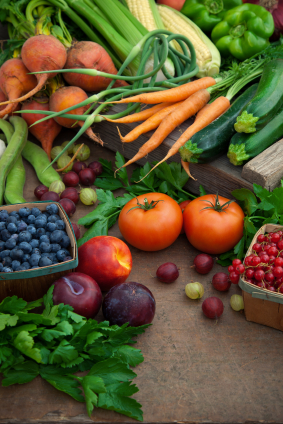The Bad News: We All Have Cancer
One of the most common public misconceptions about cancer is that people assume that if their doctor gives them a clean bill of health, that they don’t have cancer. Right? Wrong. The truth is that all of us have microscopic cancers growing in our bodies all the time. These tiny tumors form because, although the human body is pretty amazing in its ability to stay healthy, our cells do make mistakes occasionally. All it takes is for one of the more than 50 trillion cells in our bodies to make a single mistake while dividing and, presto, a potential cancer is born.

The Good News: You can Prevent Cancer from Growing
Fortunately, these tiny cancers don’t usually stay around very long, because they are fragile and short lived. Our immune system usually roots out and destroys microscopic cancers when they are spotted. Healthy tissues also contain a wealth of natural anti-cancer substances that make it very difficult for microscopic cancers to grow. An important group of these substances are cancer-starving molecules called ‘angiogenesis inhibitors’. Angiogenesis is the process our bodies use to grow new blood vessels. Cancers can hijack this process to recruit their own private blood supply to feed themselves. Without these blood vessel lifelines, cancers remain tiny and can’t become dangerous.
The only way to win the war on cancer is by eating 90% or More plant based nutrient rich diet and prevent it from occurring in the first place.
If the cancer is caused by environmental or life – style factors, then it potentially can be prevented. Eight percent of cancer cases can be prevented. Thirty percent of cancers are due to tobacco. Avoid smoking and lung cancer becomes very unlikely.
But the number one and the greatest single factor in the epidemic of cancer, particularly for cancers of the breast, colon, and prostate is Diet.
Did you know, we all have cancer cells that will pop up in our bodies, but there are certain types for foods that “feeds” the cancer and fortifies it is, and among them is animal protein. How is that? Because animal protein (meat, dairy and eggs) alters the mix of hormones and modifies important enzyme activities, causes inflammation and cell proliferation and creates an acidic atmosphere in the body—all of which create and ideal environment for cancer to thrive.
Several studies published this spring clearly demonstrate the link meat and dairy products have to cancer. According to new data from the European Prospective Investigation into Cancer and Nutrition (EPIC) study, participants who ate the most red meat and processed meat increased their risk of dying by 14 and 44 percent, respectively, compared with those who ate the least. Other recent research found that men drinking more than a glass of whole milk per day had double the risk for fatal prostate cancer, compared with men drinking less. And the National Cancer Institute found that women who consumed one or more servings of high-fat dairy products per day, compared with none to less than half a serving, were at a 49 percent increased risk for dying from breast cancer.
Fortunately, the foods we eat can also help protect our bodies. The American Association for Cancer Research found that beyond the reduced risk for overall cancer, plant based diets significantly reduced the risk of gastrointestinal cancers (stomach, colon, pancreas, etc.) and female-specific cancers (breast, uterine, ovarian, etc.), respectively.
Protective against cancer, plant-based diets are lower in fat and higher in fiber than meat-based diets. They are also full of foods that have phytochemicals, cancer-fighting substances. This might explain why the countries that consume more plant based diets have low rates of lung or prostate cancer. A varied, plant-based nutrient rich diet is a protective diet—sufficient in amino acids for protein needs; high in fiber, antioxidants, vitamins and minerals; and low in saturated fats.

I realize this is a lot of information, and it may be contrary to the very diet you are used to eating. But with this knowledge under your belt, it should be easier and more exciting to upgrade your diet knowing the profound effect it can have; it also gives you more control over the future of your health, knowing that what you eat really does make a difference. If you aren’t sick right now, lean into the change.
Whether you are looking for how to change the way you eat or need some creative nutrient rich recipes or need support or lean vigorously, you might want to check out our PREMIUM MEMBERSHIP-to get into this new and joyful way of eating.

